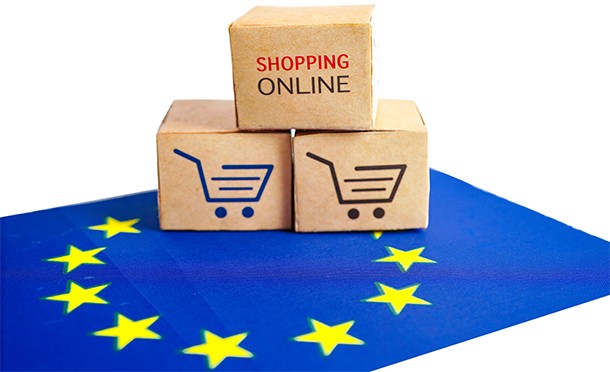VAT for eCommerce after the EU One Stop Shop. The landscape of EU VAT compliance

Introduction to the OSS (One-Stop-Shop)
By now everyone who is selling products and services online in the EU has been acquainted with the OSS. The OSS was implemented on July 1st, 2021, and it had a wide impact on the landscape of EU VAT compliance for sellers in and out of the EU.
What is the OSS?
The OSS is a new VAT scheme whereby online sellers of products and services can register for VAT in one EU member state and the registration is valid for the declaration and payment of VAT on all distance sales of goods and services throughout the EU. This new scheme is optional but favourable to sellers who offer their goods in more than one of the EU’s member states.
The OSS includes several schemes. Primarily these schemes are:
- The Union scheme, which is focused on sellers who are established in the EU but offer their products in several member states.
- The Non-Union scheme which
- The Import Scheme or the Import one stop shop (IOSS) which is focused on sellers outside the EU selling items of value up to EUR 150 to their B2C EU clients.
Along with the provided schemes, the EU VAT package included further changes such as:
- The country specific VAT registration thresholds were eliminated in favour of a unified EU threshold of EUR 10.000.
- The exemption of low-value imports was abolished.
- Special arrangements were proposed for postal & courier operators.
- Marketplaces are deemed sellers and will have to account for VAT on the products sold via the marketplace.
What does the OSS aim to accomplish?
The One Stop Shop is a straightforward solution aiming to simplify eCommerce in the EU and -in theory- it should be effective, especially for new sellers who want to reduce their start-up costs. Prior to the OSS, eCommerce in the EU was -in many cases- hindered by the need to register for VAT in every country where the threshold was exceeded.
The OSS is aiming to achieve the following:
Simplification - Each country’s VAT threshold is used to impose a significant administrative burden on businesses as well as governmental organizations. By using a single threshold of EUR 10,000 for all EU member states and a single VAT registration, VAT reporting can be streamlined.
Fairness - The new regulations should significantly reduce VAT fraud and improve the economic environment for EU companies who wish to sell their goods within EU borders. As a result, EU companies should now be able to compete on an equal level with non-EU companies who did not charge VAT on their sales.
Revenue - According to projections, member states should see an uprise in VAT collections of EUR 7 billion each year.
The effectiveness of the One Stop Shop

Following the introduction of the OSS, the European Commission has published a number of statistics to indicate that the new VAT eCommerce regulations have been successfully implemented.
More precisely:
- During the second half of 2021, Member States reported to have collected EUR 6.8 billion in VAT revenue via the newly introduced OSS portals.
- Imports of low value consignments generated over EUR 2 billion in VAT revenue.
- Over half of the low value consignment revenue of about EUR 1.1 billion was obtained via the import OSS.
- Almost EUR 700 million represented new VAT revenue which equals to approx. EUR 1.4 billion annually that will derive from the elimination of the low-value exemption provided to goods up to EUR 22, which previously were greatly prone to fraud.
- The ability of the import OSS to combat fraud and VAT losses as a result of undervaluation is expected to have resulted in an additional EUR 270 million in VAT revenue being collected.
Current EU VAT landscape for eCommerce sellers
The following are the most typical circumstances that will necessitate a VAT registration for eCommerce sellers:
- Currently an EU seller who engages in eCommerce activities in more than one EU member state and surpasses the EUR 10.000 threshold will require at least one VAT registration in the member state of establishment.
- A seller who is established outside the EU and is involved in B2C sales of products of a value less than 150 EUR to EU clients, will require a VAT registration in order to register with the IOSS
- A seller who is holding stock in an EU member state other than the member state of establishment, will require a VAT registration in that country. For example, if you’re using Amazon pan-EU (FBA)
- A seller who sells products via an online marketplace will not require
aVAT registration as the marketplace is accountable for acquiring and remitting VAT on the products sold.
At the moment, the OSS appears as the number one option for distance sellers who are selling their products or services in more than one EU country and the IOSS respectively for sellers established outside the EU.
Depending on a variety of factors such as product value, type of buyer, location of seller and sales platform, there are many variations of VAT requirements which may appear daunting to a new or even an established eCommerce seller.
For this reason, Global VAT Compliance has created an online assessment tool which can determine a seller’s VAT requirements based on a series of questions.
To view the tool and assess your VAT requirements click here: Free VAT Assessment

Conclusion
The One Stop Shop has undoubtedly been a success story in contributing to the simplification of EU VAT legislation and in levelling the playing field between EU and non-EU sellers. At the same time, it encourages entrepreneurship as it helps in lowering compliance costs for those looking to break into the eCommerce market. Be that as it may, the OSS is still relatively new in its implementation and countries as well as businesses are still adjusting to the new measures while VAT regulations are subject to frequent changes.
In order for eCommerce sellers to optimize their VAT process management they will require a combination of in-depth indirect tax expertise along with timely and accurate reporting.
At Global VAT Compliance, we can provide you with an end-to-end compliance package consisting of a full VAT assessment, VAT registration and reporting in any jurisdiction required, so that you can focus on expanding your online business.
Get in touch: Contact Global VAT Compliance
Visit our Website: https://www.globalvatcompliance.com/